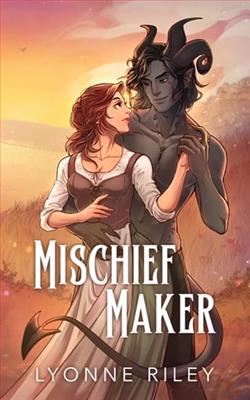Page 15 of The Mystery Guest
“What?” she asks.
“I just found it.”
—
After Gran leaves the parlor, I spend a long while sitting in that royal-blue high-back chair, taking in every fine detail of the majestic room, studying and memorizing, recording each object in an imaginary ledger in my mind. This way, even if I never return to the Grimthorpe mansion, I can always revisit it in my memory.
This is a technique I learned on a school field trip to the national gallery not so long ago. Though I was laughed at by my classmates and scolded for reading every descriptive tag on every exhibit, I didn’t care. Nothing mattered more than what I was building in my mind—not just a happy place but a happy palace.
Once I’ve enumerated every painting, tapestry, and piece of art in the Grimthorpe parlor, I re-create the details with my eyes closed, and only after I have a complete picture stored do I pick up Gran’s needlepoint pillow. I start with a pink-and-blue flower, but before long, my eyelids feel heavy. I rest Gran’s embroidery in my lap and allow my eyes to close.
“Teatime!” I hear, and my eyes startle open. It takes me a moment to remember where I am. Gran is standing in front of me. I check the clock on the coffee table and am shocked to see that the minute hand has made more than a full rotation.
“I see you got some rest,” Gran says. “No wonder you’re tired, Molly. You’ve had quite a morning.”
Beside her is a cart on wheels containing a steaming pot of tea, a robin’s-egg-blue teacup on a delicate porcelain saucer, a basket of fresh-baked currant scones, clotted cream in a pretty pink bowl, lemon slices in a yellow one, cucumber finger sandwiches on a side plate, crusts removed, and one ornate silver spoon.
“Who is all this for? You said the Grimthorpes never entertain guests,” I say.
Gran laughs. “I assure you they don’t. This is all for you.”
I can hardly believe it. On Saturdays, Gran prepares us a special tea with crumpets, which we eat at our small secondhand kitchentable in our cramped apartment. Once, for my eighth birthday, Gran bought clotted cream, which was so delightfully delicious I’ve never forgotten the taste. I asked if we could have it every weekend, but Gran shook her head. “I wish we could,” she said. “But the cost is too dear.”
Now, Gran prepares my tea just the way I like it—two lumps of sugar and a splash of milk. She fills a side plate with delectable treats and places it on the bowlegged side table next to me. She folds a clean cloth over the arm of my chair, presumably for crumbs and spills.
“Won’t you join me, Gran?” I fully expect her to pull up a chair. I can’t wait to tell her all about my mind palace, how I’ve committed every item in this room to memory, from the pheasants in the hand-woven rug to the assortment of fine jewels on the Fabergé egg, just in case I never come back to this glorious mansion.
“Molly, I can’t join you. I’ve got more windows to clean,” Gran says. “But I’ll check in on you later. Today is dusting day—so dust we must. Later, you can keep me company while I clean this room. Would you like that?”
“Yes, Gran,” I reply.
Her hand grazes my cheek. Then she leaves the room.
I marvel once more at the tea cart. I prepare one scone with clotted cream and marmalade, then another. I devour both, washing them down with tea that tastes like citrus and roses steeped in sunshine. I pour myself a second cup using two hands, just like Gran taught me. I’m proud of myself for not spilling a drop.
I try to pace myself, chewing every bite at least twenty times, but before long, the basket of scones is empty and all that’s left on the sandwich plate is a sprinkle of crumbs. I return my dishes to the tea cart. It’s then that I spot the cloth Gran left on the arm of my chair. It gives me an idea. Why should I spend my time enjoying tea and embroidering when I can make myself useful?
Do a good deed for someone in need.Gran taught me that.
I pick up the cloth and start by wiping the crumbs from my chair. Then I continue Gran’s chore by dusting and polishing the side table until it shines. I move through the room, wiping every surface, not just tabletops and chairs but also the frames on the wall, at least the ones I can reach. I dust the clock on the coffee table and the leather-bound books on it, too. I dust trinkets and statues, lamp bases and shades, windowsills and sashes.
There’s only one item in the room left to polish—the stunning but tarnished Fabergé egg. I pick it up off the mantel and carefully carry it to my chair. I sit and rest the preciousobjetin my lap. It’s heavier than it looks and even more beautiful up close. The arching legs of the pedestal are decorated with intricate garlands, the fine diamonds and opalescent pearls on the egg itself are inlaid in perfectly symmetrical rows. The gold pedestal may be dull and discolored now, but I know just what to do to fix that.
I grab a couple of lemon slices from the tea cart and squeeze the liquid onto the stained legs the way Gran showed me when we clean our secondhand silver at home. Using her cloth, I rub and polish, I buff and scour. When I’m finished, my hands and fingers are tired, but there is not a single spot on that golden pedestal that doesn’t glint and glimmer. I bring the egg to the mantel and put it back on its base, where it shines like a miniature sun.
That’s when I hear it, a raspy voice behind me. “What have you done?”
I jump and turn around.
Mrs. Grimthorpe stands at the entrance of the room, one bony finger pointing at the glowing Fabergé. I hear rushed footsteps, and then Gran appears at the threshold as well. She looks at the cleaning cloth and the bowl of lemons I left on my chair.
“Molly,” Gran says. “What are you doing?”
“I thought I’d get a head start on your cleaning chore,” I reply.“Dust we must. I’m polishing, too. The Fabergé was so dirty, Gran. I don’t think it has ever been cleaned.”
I’m expecting Gran to compliment me on my initiative, but instead she puts one hand over her mouth.
“You wretched girl!” Mrs. Grimthorpe shrieks, thereby breaking her very own Rule Number Two about raised voices in the house. She turns to Gran. “She’s just stripped the patina off a priceless antiquity!”















